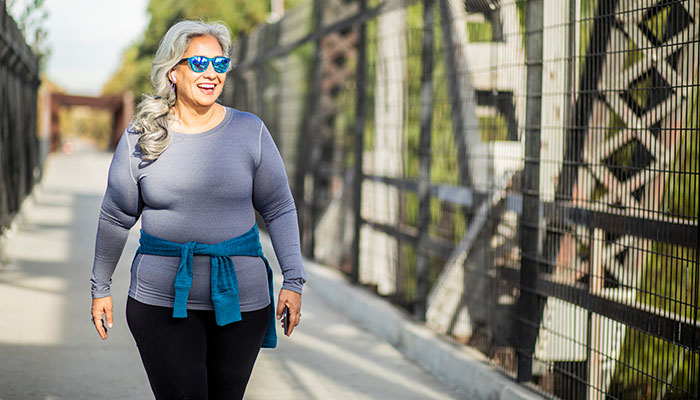Breast Cancer Treatment and Weight Gain
Hester Hill Schnipper, LICSW, OSW-C Program Manager Emeritus, Oncology, Social Work
MARCH 25, 2020
 In any breast cancer support group, there is conversation about weight gain. Most of us assumed that going through cancer treatment would include unwanted weight loss. To learn that the opposite is generally true is surprising. As one of my patients said: Have we got a deal for you? You have a potentially life-ending illness; you may lose one or both breasts and probably your hair. You will feel pretty rotten for some months, and OH! You will gain weight.
In any breast cancer support group, there is conversation about weight gain. Most of us assumed that going through cancer treatment would include unwanted weight loss. To learn that the opposite is generally true is surprising. As one of my patients said: Have we got a deal for you? You have a potentially life-ending illness; you may lose one or both breasts and probably your hair. You will feel pretty rotten for some months, and OH! You will gain weight.
Why does this happen and how common is it? A recent Australian study found that almost two-thirds of women were overweight post breast cancer. Two-thirds of those women reported gaining an average of 20 pounds and 17% gained more than 40 pounds. Honestly those are higher numbers than my experience suggests, but almost everyone I know, including me, came out of breast cancer treatment with more pounds than she had when it began. And we all find that losing that weight is very difficult.
Since overweight and obesity are risk factors for the development of breast cancer in the first place, and because weight gain may result in poorer outcomes, it seems clear that we must learn more about how to prevent or manage those extra pounds. The study suggests that there is an 18-month window after diagnosis to best focus on weight. Presumably, as more time passes, either more weight accumulates or it is just harder and harder to lose it.
Why does this happen? There is no single reason, but rather a perfect storm of possible causes as a patient moves through cancer treatment.
- Diagnosis: Let's begin with the crisis of diagnosis. One way to separate the world is people who stop eating under stress and people who can't stop eating in the same situation.
- Post Surgery: Recovering from surgery, which usually comes first, is likely to be a time of reduced activity and less focus on healthy eating.
- Chemotherapy / Hormonal Therapy: Moving then into chemotherapy and/or hormonal therapy, the reasons are more and complicated. Most of us find that, during chemo, we may not feel better if we eat, but we feel worse if our stomachs are empty. This leads to snacking and perhaps more daily calories, and few people sustain an active exercise routine through treatment. The basic weight formula of calories in vs. calories expended is definitely slanted towards gain. We then find that our metabolisms are altered, especially if the treatment results in sudden menopause. We likely lose our slim waists and become more pear-shaped in the traditional style of older women. The anti-estrogen hormonal therapies for ER-positive breast cancers are known to often cause weight gain.
Being a little heavier can be seen as a small price to pay for good health and staying alive. Being more than a little heavier may threaten our health as well as our self-esteem and self-image. I have often written about the value of regular mild to moderate exercise, and certainly a primary reason is weight control. We likely find that just skipping dessert no longer automatically peels off the pounds. I have known many women who were successful with Weight Watchers and others who find there is no substitute for eating less and moving more.
There is a delicate and very personal balance to be struck between sustaining good health, feeling good about our bodies (or at least feeling accepting of our bodies), and not making ourselves nuts about every bite we eat. At BIDMC and most hospitals, there are dietitians with whom you can consult. They can offer sound advice about ways to think about your diet, your weight, and your life. We all want to do all that we can to stay well, but most of us are not willing to sacrifice all of the pleasures of the table. I guess this can be summed up with the old reminder about the wisdom of moderation in all things.



